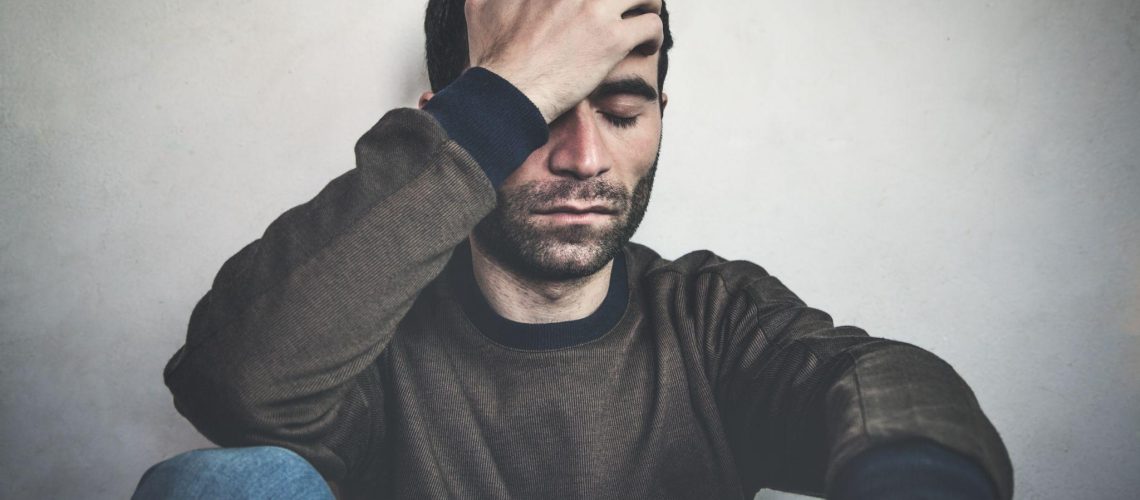Recognizing the signs of heroin addiction in a loved one can be challenging and heart-wrenching. This guide is dedicated to helping you, as a concerned family member or friend, identify the key indicators of heroin addiction.
It’s important to approach this sensitive subject with empathy, understanding, and care. Early recognition can be a vital step in getting the necessary help and potentially saving a loved one’s life.
1. Changes in Physical Appearance
One of the most noticeable signs of heroin addiction is a change in physical appearance. This may include sudden weight loss or gain, which can be quite drastic. Additionally, there’s often a noticeable decline in personal hygiene, as self-care becomes less of a priority. Look for unexplained bruises or marks on the body, especially on the arms, which might indicate intravenous drug use.
2. Behavioral Changes
Heroin abuse often leads to significant behavioral changes. Your loved one might become more secretive, avoiding questions or lying about their whereabouts and activities. They may also withdraw from family and friends, becoming more isolated.
Financial difficulties can arise unexpectedly, with money being spent on the drug instead of on regular expenses. You might notice them borrowing money frequently or having unexplained financial shortfalls.
3. Mood Swings and Personality Shifts
Mood swings are common in individuals struggling with heroin addiction. These can range from periods of depression to uncharacteristic aggression or irritability and be extreme in individuals with a personal history of mental illness. Also, keep an eye out for signs of anxiety, paranoia, or general emotional instability, which can all be indicative of substance abuse issues.
4. Social Isolation
Someone who is addicted to heroin might lose interest in hobbies, activities, or social gatherings that they once enjoyed. They may start to avoid family events and become more reclusive, preferring to spend time alone or with new friends who encourage or share their addictive habits.
5. This change in social patterns is a red flag and often points toward a deeper issue.5. Neglecting Responsibilities

Heroin addiction can lead to a significant decline in a person’s ability to handle responsibilities.
This might manifest as decreased performance at work or school, neglecting household duties, or failing to care for children properly. Important appointments or commitments might be disregarded, and there can be a general sense of irresponsibility or apathy toward life’s obligations.
6. Physical Symptoms
Heroin addiction often manifests through various physical symptoms. Frequent flu-like symptoms, including nausea, vomiting, and sweating, are common among heroin users. Another telltale sign is the appearance of small, constricted “pinpoint” pupils.
Additionally, you might observe slurred speech or impaired coordination, which are indicative of recent heroin use. These physical signs are not only indicative of heroin use but also of the detrimental impact it has on the body.
7. Changes in Sleep Patterns
Alterations in sleep patterns are a significant symptom of heroin addiction. This can take the form of excessive sleeping or, conversely, bouts of insomnia. You may notice that the individual has unusual sleep schedules, such as staying up throughout the night or sleeping at odd hours during the day. These erratic sleep patterns are often a direct consequence of the disruptive effects of heroin on the body’s natural rhythms.
8. Drug Paraphernalia
Finding drug paraphernalia is a clear and concerning sign of heroin use. This can include items such as syringes, spoons with burn marks, small plastic baggies, or pieces of rubber tubing. You might also come across aluminum foil with burn marks or lighters in their belongings. The presence of these items often indicates not only the use of heroin but also the extent and frequency of the usage.
9. Risky Behaviors
Individuals struggling with heroin addiction may engage in risky or illegal activities. This could include driving under the influence, stealing, or other behaviors that are out of character and potentially dangerous. These actions are often driven by the desperation to obtain the drug or under the impaired judgment caused by the drug’s influence, putting both the user and those around them at risk.
10. Withdrawal Symptoms
Observing withdrawal symptoms is a clear sign of heroin dependency. When the drug is not available, the individual might exhibit physical discomfort, including symptoms like muscle aches, restlessness, or agitation. Other withdrawal signs can include diarrhea, cold flashes, and intense cravings for the drug. These symptoms are a strong indicator of not just use but physical dependence on heroin.
Approaching a Loved One About Heroin Addiction
Starting a conversation about heroin use and addiction with a loved one can be daunting, yet it’s a critical step toward recovery. It’s important to approach the conversation with empathy, understanding, and without judgment.
Choose a time and place where you can speak privately and without interruptions. Begin by expressing your concern in a caring and non-confrontational manner, focusing on specific behaviors you’ve observed rather than making accusations.
Encourage them to share their feelings and listen actively without interrupting. Avoid using stigmatizing language; instead, use supportive language that emphasizes your concern for their well-being and your desire to help.
Let them know that addiction is a medical condition and recovery is possible with the right support. Offer to assist them in seeking professional help, but be prepared for resistance or denial.
Remember, this conversation is the start of a dialogue, not a one-time event. Your support and understanding can make a significant difference in encouraging your loved one to take the first step toward recovery.
Del Arroyo Recovery Center’s Heroin Addiction Program
At Del Arroyo Recovery Center, we understand the challenges faced by individuals struggling with heroin addiction and their loved ones. Our comprehensive heroin addiction program is designed to provide personalized care, encompassing detoxification, therapy, and holistic approaches to ensure a well-rounded recovery.
Following the initial treatment, our aftercare program plays a pivotal role in sustaining long-term recovery, offering ongoing support and resources to prevent relapse and maintain a drug-free life. Take the first step today. Contact Del Arroyo Recovery Center and begin the journey to recovery and lasting wellness.

